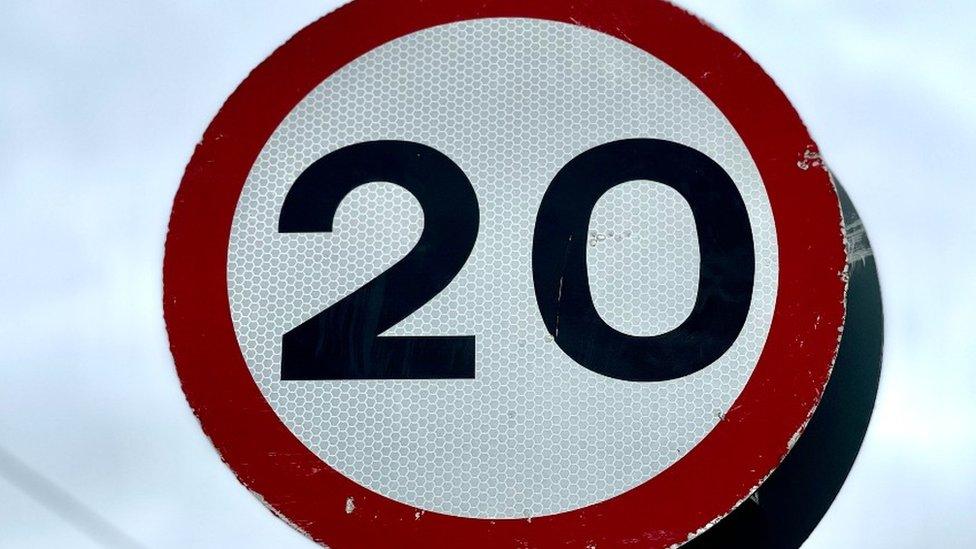Wales 20mph: Senedd petition says speed plan should be axed
- Published
Residents have mixed views about 20mph speed limit zones in residential areas
A petition to scrap plans to introduce a 20mph speed limit in residential areas in Wales has gained more than 21,000 signatures.
Ministers intend to reduce the default speed limit in cities and towns from 30mph to 20mph from 17 September.
They said the speed limit would cut road accidents and noise and encourage people to walk or cycle.
But a petition to the Senedd expressed concerns the changes would increase commuting times.
The petition looks set to be debated in the Senedd later this year following a meeting of the petitions committee on Monday.
The Welsh government's plan has divided opinion. Nearly 300 people have complained to one council about moves to reduce speed limits to 20mph, but others said it would make schoolchildren safer on the roads.
Meanwhile a Welsh government-commissioned survey of 1,000 people last September suggested 60% backed the plan versus 39% against.
Fiona Andrews, member of the "20's Plenty" campaign group, told BBC Radio Wales Breakfast the speed limit was "more human, friendlier" and better for the environment.
Ms Andrews, who lives in St Dogmaels, Pembrokeshire, which has been trialling the speed limit for two years, said it had made a big difference.
There had been four near-misses recently because people were able to stop their cars within 12 metres (40ft), rather than the 27 metres (89ft) it would take at 30mph, she said.
"I hope the petitions committee will think about how two thirds of us are in support of this," she said.
She said the 20mph speed limit gave parents with children aged nine or ten the confidence to give them the freedom to walk to school independently.
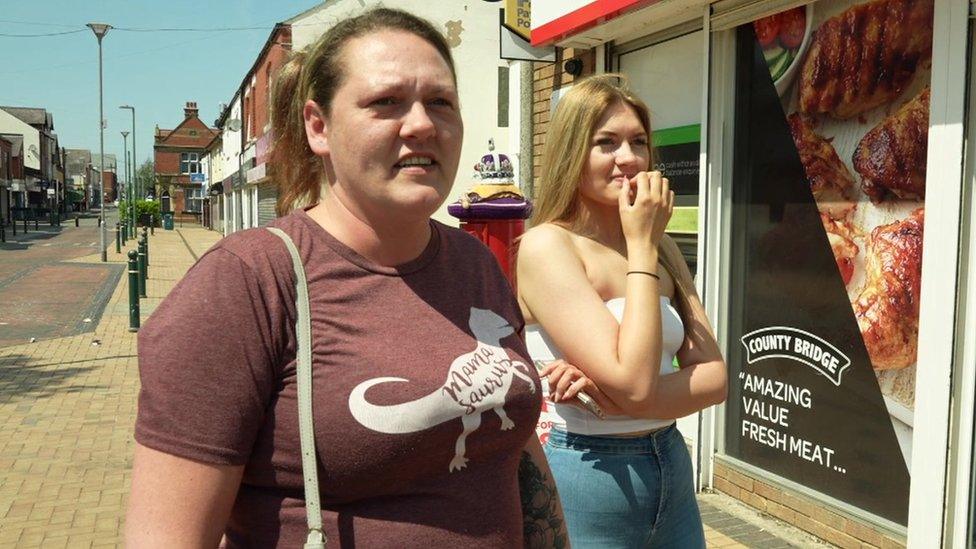
Calais Smith (left) does not think the 20mph speed limit makes sense
But Calais Smith from Buckley, Flintshire, which has also been part of the 20mph trials, said she wanted the speed limit to be raised back to 30mph on most roads.
"No one sticks to it anyway," she said.
"Outside schools it makes sense, but everywhere else it's ridiculous."
Angie Hargreaves said the speed limits were not making roads safer.
"People overtake recklessly," she said.
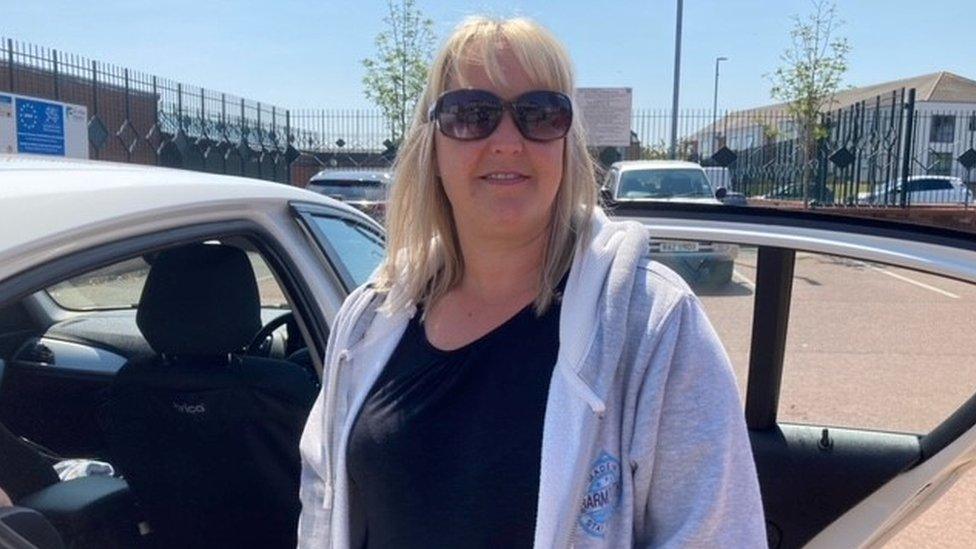
Angie Hargreaves says she does not think the speed limit makes roads safer
"I think it's awful. I understand on housing estates and schools but not main roads.
"I feel sorry for the older people trying to stick to it and people getting annoyed - it's like road rage."
In Ceredigion, nearly 300 people have formally objected to the reduction to 20mph on many of the area's roads in a collection of petitions, the Local Democracy Reporting Service said.
Because of the way roads in the predominantly rural authority are organised, the councils had to formally consult on the change.
But Buckley resident John Douglas said he supported the 20mph limit.
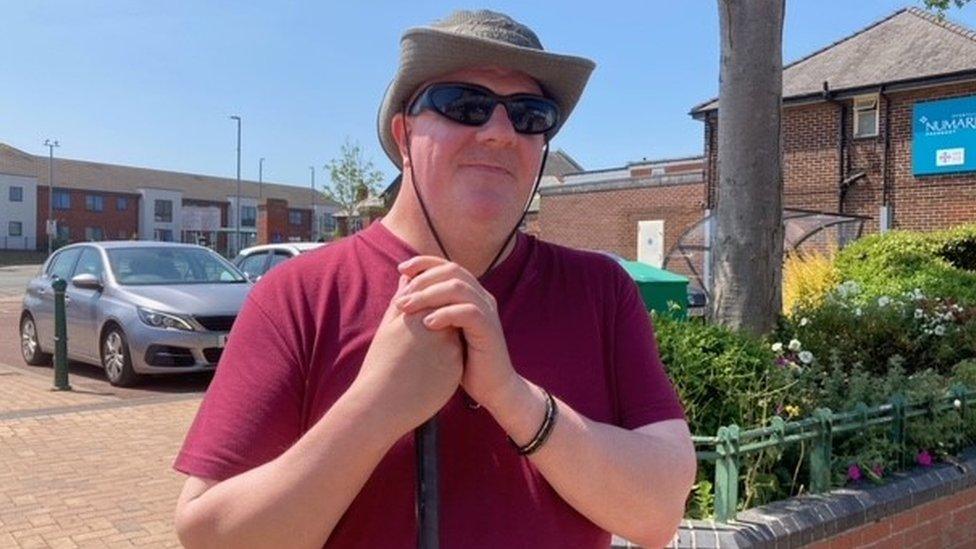
John Douglas, who is partially sighted, thinks the limit should stay and 20mph
Mr Douglas, who is partially sighted, said it should be better enforced and that he did not believe it was being observed by many.
"With my eyesight problems, I still hear them accelerating when I am halfway across a pedestrian crossing," he said.
"None of them pay attention to it."
He added the safety of children had to be paramount.
On Monday the chair of the petitions committee, Jack Sargeant, said "given the scale of the signatures… and the interest of the topic", the closing date of the petition should be brought forward "so that we can request a debate" before the new speed limit becomes law.
The debate would be unlikely to bring about a change to the new speed limit, which is already in law and will come into effect on 17 September.
But it would be an opportunity for Senedd members to reflect the views of their constituents.
The move would need to be approved by the Senedd's business committee, which oversees proceedings in the 60-member debating chamber.

Analysis by David Deans, BBC Wales political reporter
The decision to switch built up roads to 20mph will be one of the biggest the Welsh government has taken since the pandemic - arguably even since 1999, when the old National Assembly was set up.
It will have an impact on anybody who uses the road in built up areas, with the aim of encouraging more pedestrians and cyclists.
It is one of a bunch of transport initiatives being undertaken by Wales' transport minister in a short period of time - something a bit unusual in a country where the governing Welsh Labour party has been reluctant to make rapid changes to policy in the past.
Lee Waters has already reshaped Cardiff's road building plans. He is also tackling the future of the bus network, and hopes to fine pavement parkers too.
The latter got delayed, though, under pressure from councils worried about the workload his department is generating.

HOW TO FIX A RAILWAY: Wales' transport transformation, from boardroom to platform
TRUCKERS: Life on the road with Wales' HGV drivers

Related topics
- Published26 December 2022
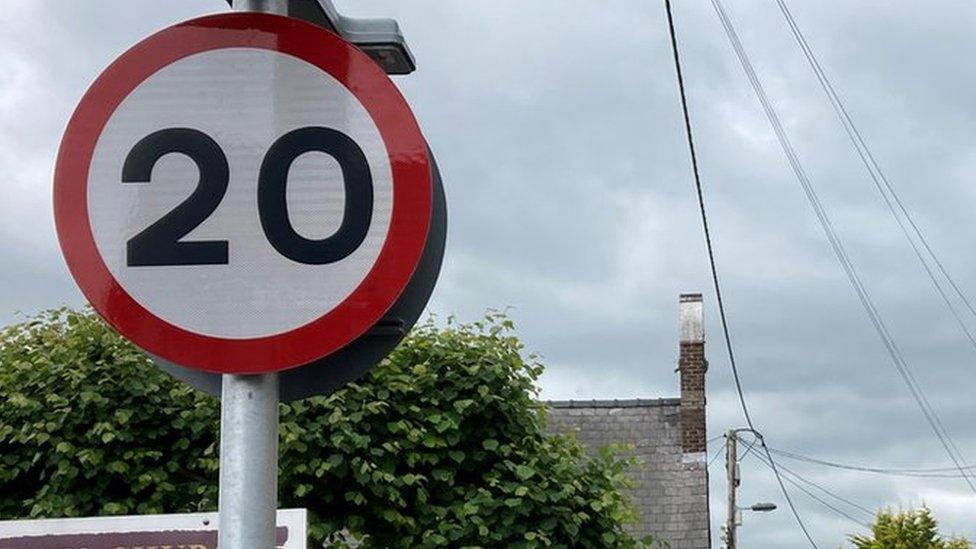
- Published7 November 2022
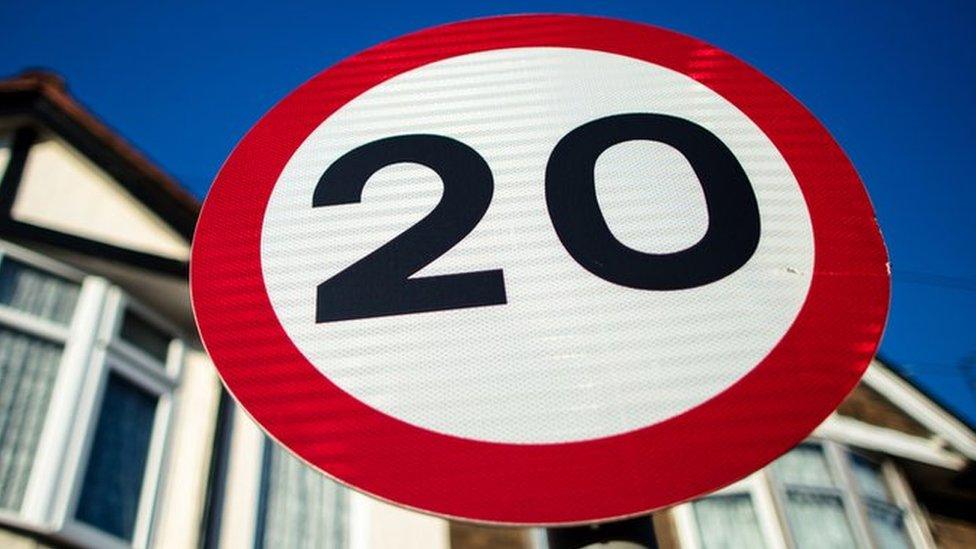
- Published11 March 2022
